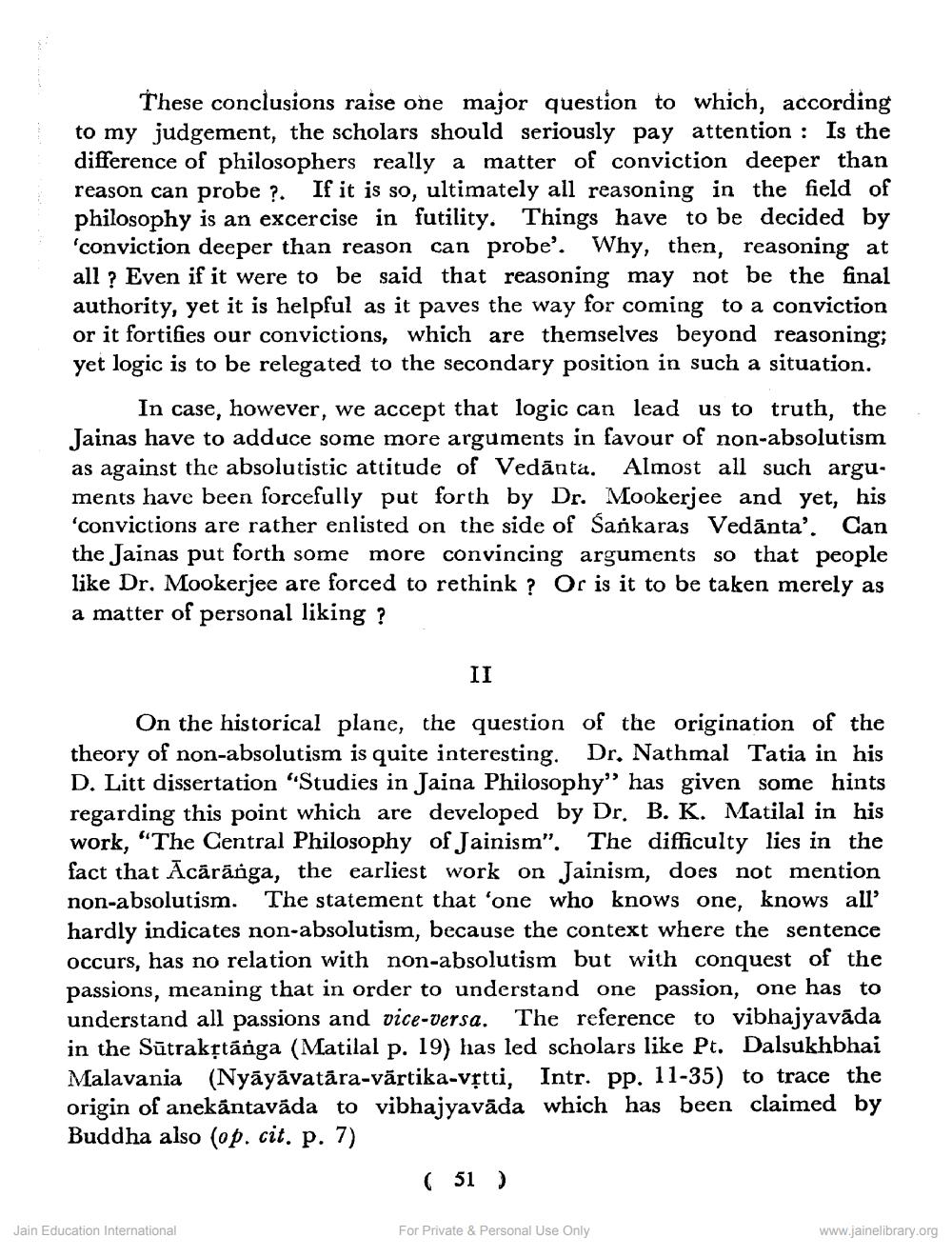________________
These conclusions raise one major question to which, according to my judgement, the scholars should seriously pay attention : Is the difference of philosophers really a matter of conviction deeper than reason can probe ?. If it is so, ultimately all reasoning in the field of philosophy is an excercise in futility. Things have to be decided by 'conviction deeper than reason can probe'. Why, then, reasoning at all ? Even if it were to be said that reasoning may not be the final authority, yet it is helpful as it paves the way for coming to a conviction or it fortifies our convictions, which are themselves beyond reasoning; yet logic is to be relegated to the secondary position in such a situation.
In case, however, we accept that logic can lead us to truth, the Jainas have to adduce some more arguments in favour of non-absolutism as against the absolutistic attitude of Vedānta. Almost all such arguments have been forcefully put forth by Dr. Mookerjee and yet, his 'convictions are rather enlisted on the side of Sankaras Vedānta'. Can the Jainas put forth some more convincing arguments so tha like Dr. Mookerjee are forced to rethink? Or is it to be taken merely as a matter of personal liking ?
II
On the historical plane, the question of the origination of the theory of non-absolutism is quite interesting. Dr. Nathmal Tatia in his D. Litt dissertation "Studies in Jaina Philosophy'' has given some hints regarding this point which are developed by Dr. B. K. Matilal in his work, "The Central Philosophy of Jainism". The difficulty lies in the fact that Ācārārga, the earliest work on Jainism, does not mention non-absolutism. The statement that 'one who knows one, knows all' hardly indicates non-absolutism, because the context where the sentence occurs, has no relation with non-absolutism but with conquest of the passions, meaning that in order to understand one passion, one has to understand all passions and vice-versa. The reference to vibhajyavāda in the Sūtrakstānga (Matilal p. 19) has led scholars like Pt. Dalsukhbhai Malavania (Nyāyāvatāra-vārtika-vrtti, Intr. pp. 11-35) to trace the origin of anekantaväda to vibhajyavāda which has been claimed by Buddha also (op. cit. p. 7)
( 51 )
Jain Education International
For Private & Personal Use Only
www.jainelibrary.org




